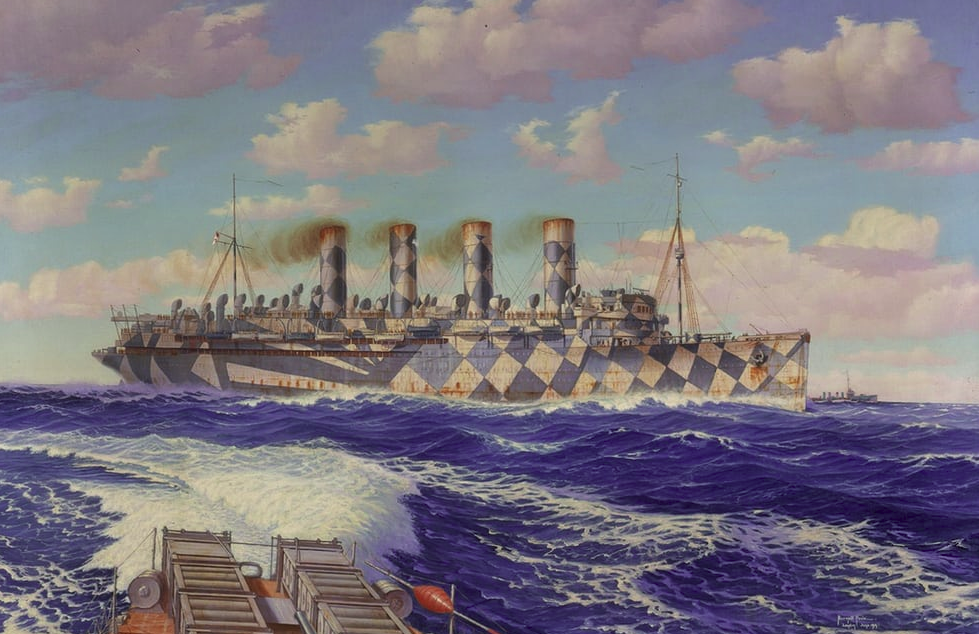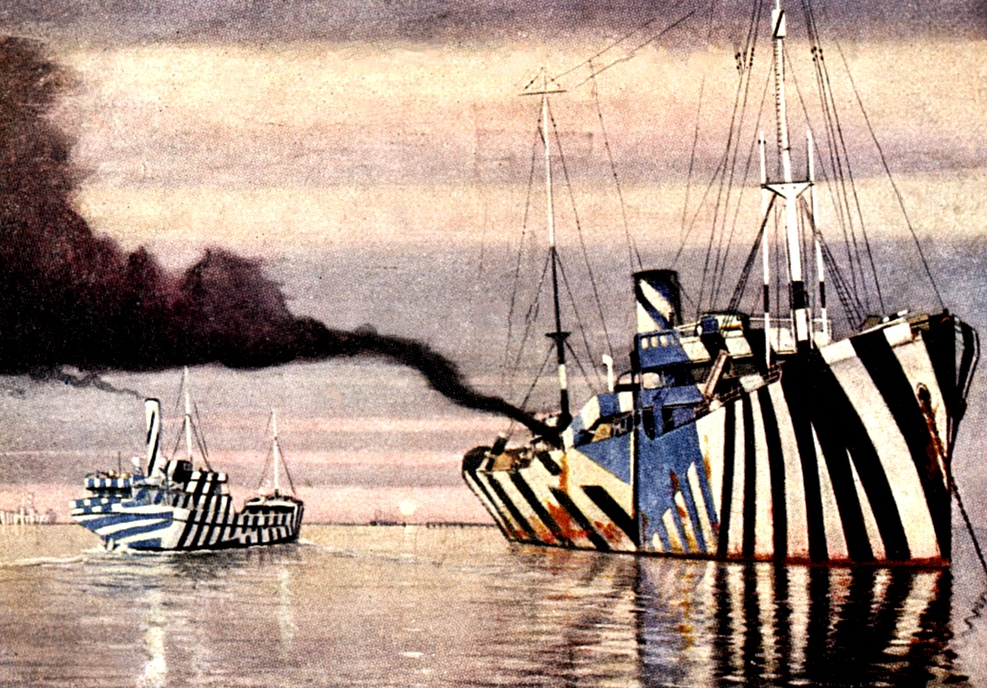16 August 2018
Dazzle Ships
Dazzle camouflage was a style of military camouflage used during World War I and World War II. It was the innovation of Devon artist, Norman Wilkinson. Unlike most camouflage, Dazzle was not meant to conceal the ship, but to provide an illusion that made it difficult to identify the type of ship and its speed and direction of travel. It is alleged that Picasso tried to take credit for the Dazzle paint scheme as it closely resembled cubism, which had inspired Wilkinson’s idea for the paint schemes.
Examples of Dazzle Ships
HMS Mauretania (1918)
SS Olympic with returned soldiers at Halifax, Canada (1917)
– painted by Arthur Lismer
USS Nebraska (1918)
USS Charles S. Sperry (1944)
Today’s quote
The ignorant mind, with its infinite afflictions, passions, and evils, is rooted in the three poisons. Greed, anger, and delusion.
– Bodhidharma
On this day
16 August 1938 – death of Robert Johnson. American blues guitarist and singer-songwriter. Legend has it that Johnson met the devil at a crossroads and sold his soul in return for fame and fortune. One of the first musicians of the 20th century to join the 27 club. Born 8 May 1911.
16 August 1958 – birth of Madonna, American pop star, (born Madonna Louise Ciccone). The Guinness Book of World Records lists her as the biggest selling female recording artist of all time, with over 300 million records sold world-wide.
16 August 1962 – Ringo Starr becomes the new drummer for the Beatles, taking over from Peter Best who was sacked by the band. Ringo went on to fame and fortune, Best became a career public servant for 20 years, before forming the Peter Best Band.
16 August 1975 – Land is returned to Australia’s indigenous people for the first time by an Australian government. Prime Minister Gough Whitlam (Australian Labor Party) returned land to Vincent Lingiari and the Gurindji people, who are based southwest of Katherine, in the Northern Territory. The land was returned as freehold following years of campaigning that included a strike in 1966 at Wave Hill cattle station.
16 August 1977 – death of Elvis Presley, the King of Rock and Roll. Born 8 January 1935.





